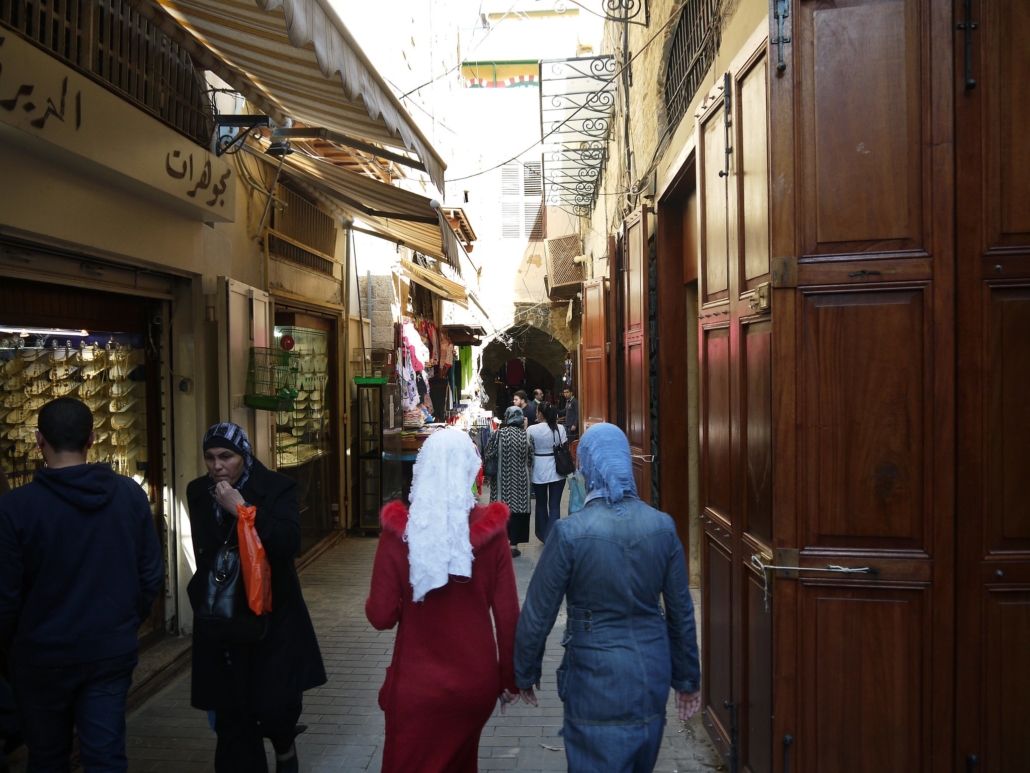Human Trafficking in Lebanon

Human trafficking in Lebanon is rampant and requires reform. Someone once asked Paul, a volunteer for the Catholic Church in Beirut, Lebanon, how he knows that most female prostitutes are trafficking victims? Paul answered that when he attempted to help a trafficking victim contact an NGO, her captors assaulted him.
The Situation
Paul is just one of the many workers on the frontlines fighting against human trafficking in Lebanon. Lebanon’s government is improving its work to stop human trafficking, but Lebanon remains on Tier 2 according to the U.S. Department of State’s Trafficking in Persons report. The Tier 2 standing means that Lebanon has not met the minimum standards to eliminate human trafficking.
Human traffickers target certain groups such as Syrian refugees, illegal migrants, domestic workers and women with artiste visas. Employers lure in workers and artistes under the guise of employment and then withhold their wages or passports to control them. Meanwhile, migrants and refugees come into the country with nothing leaving them open to capture. Poverty affects these targeted groups making it easier for employers and traffickers to control them. Lebanon has struggled with human trafficking because of various problems, including its past legislation and misguided judicial system.
Human Trafficking Issues in Need of Reform
- Lebanon’s human trafficking network is immense. The International Security Forces (ISF) and General Directorate of General Security (GDS) commented that even traffickers further down the chain of command contact more extensive organized networks. Beirut, Lebanon’s capital, and the town of Jounieh are where most human trafficking victims end up. Even though the ISF was able to identify 29 trafficking victims in 2017, the United Nations High Commissioner for Refugees (UNHCR) believes the number of victims is in the thousands.
- The country’s laws place a significant strain on the victims because women can work as licensed prostitutes, but Lebanon’s government has not supplied licenses since the 1970s. However, after 1990, the country made secret prostitution, or prostitution without a license, illegal. Foreign women come to Lebanon to work as dancers in nightclubs under an artiste visa. The visa’s terms restrict the women to the hotels they live in and give nightclub owners power over the women allowing them to withhold their wages and passports. Traffickers also exploit these women through physical or sexual abuse.
- Ashraf Rifi, who served as minister of justice between 2014 and 2016, and ISF director-general from 2005 to 2013, commented that Lebanon needs to change how it combats human trafficking. Rifi went on to mention how there is corruption at high levels and even corruption within the ISF. In 2018, authorities arrested Johnny Haddad, the head of an ISF department, on charges of corruption involving prostitution networks. The organization’s ethics committee placed him under investigation. If anti-trafficking organizations’ leaders experience compromise, fighting traffickers becomes even more difficult than it was before.
- For trafficking victims in Lebanon, the courts frequently show no remorse. After studying 34 different trafficking cases, lawyer Ghida Frangieh concluded a double standard in the judge’s treatment concerning prostitution and begging. Forced begging cases nearly always received the label of being a trafficking case, while in the case of prostitution, the judge would frequently find there was some level of consent. The problem here is that the U.N. Convention on Human Trafficking stated that consent is irrelevant in trafficking cases because traffickers could beat or kill victims if they do not consent.
Even though Lebanon struggles with human trafficking, it is making progress in combatting these human traffickers. Lebanon has focused on improving its identification of trafficking victims and bringing shadowy trafficking networks into the light.
How Lebanon is Fighting Against Human Trafficking
- In 2016, Lebanon shut down Chez Maurice, the largest human trafficking network in the country. Chez Maurice held more than 75 Syrian women in a house with blacked-out windows, only allowed to leave to have abortions or receive treatment for venereal disease. The organization lured the Syrian refugees by offering them jobs, such as restaurant work, and then imprisoned them. While there, the captors sexually and psychologically abused the women. After discovering the human trafficking network, authorities took those responsible into custody, and they are currently awaiting trial.
- Lebanon’s government has yet to completely satisfy the minimum requirements for human trafficking’s eradication, but it is making significant strides to change that. The government increased investigations into trafficking cases and improved its ability to identify trafficking victims. For example, in 2016, the ISF only investigated 20 human trafficking cases, while in 2018, it investigated 45 cases. This change may show an improvement in identifying trafficking victims. Lebanon’s government has improved its relationships with NGOs such as Legal Agenda or Kafa, leading to more effective cooperation with screening possible victims in government-controlled migrant detention facilities.
- The government has done great work investigating potential human trafficking cases, but it still has room for improvement. The GDS reported 124 of 167 cases, which ended with a referral to authorities for investigation, giving back pay to workers and repatriation for migrant workers. The MOJ reported prosecutor referred about 38 cases to judges for further analysis leading to 69 alleged traffickers’ prosecutions involving different types of human trafficking. Since numerous cases have overloaded Lebanon’s judicial system, it took time to resolve these cases, but the system settled them, nonetheless.
Lebanon is steadily improving in its fight against human trafficking. Human trafficking in Lebanon is still happening, but its people continue to work towards eradicating it.
– Solomon Simpson
Photo: Flickr
